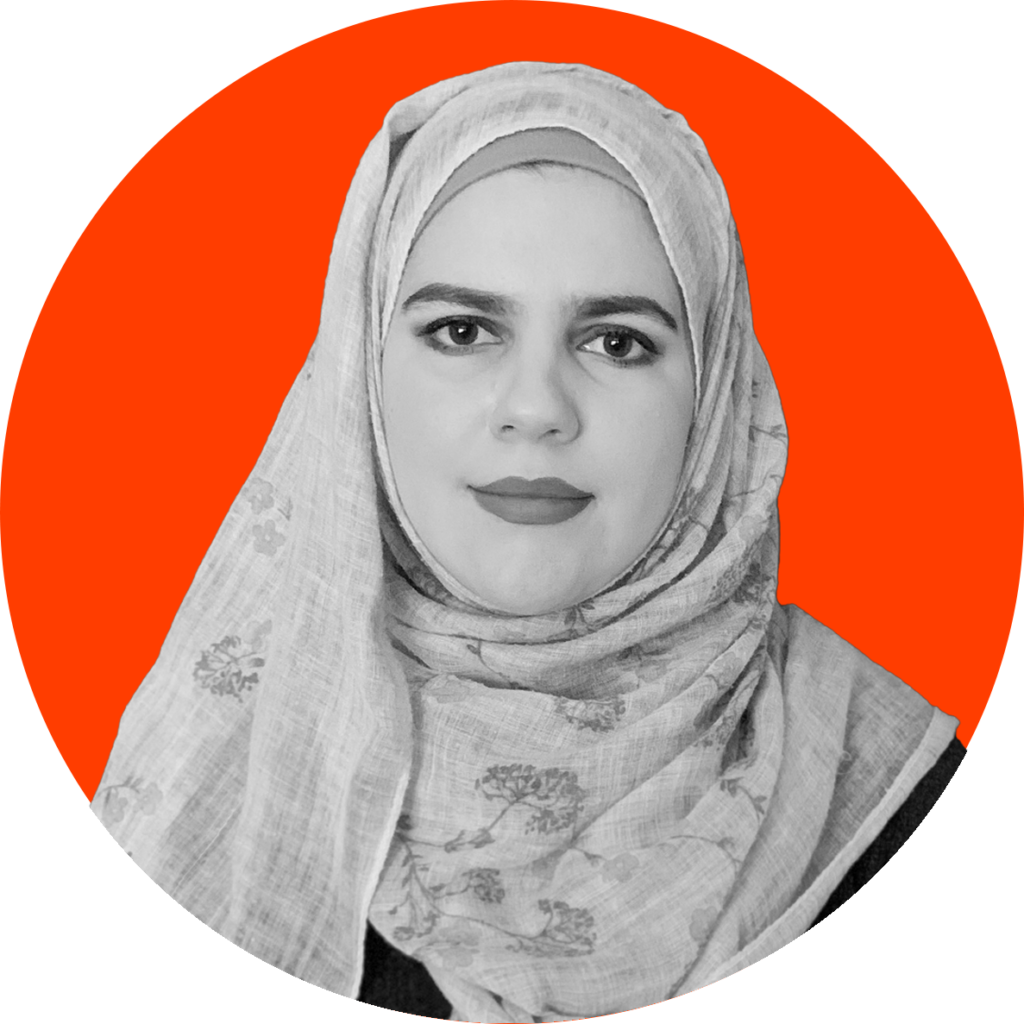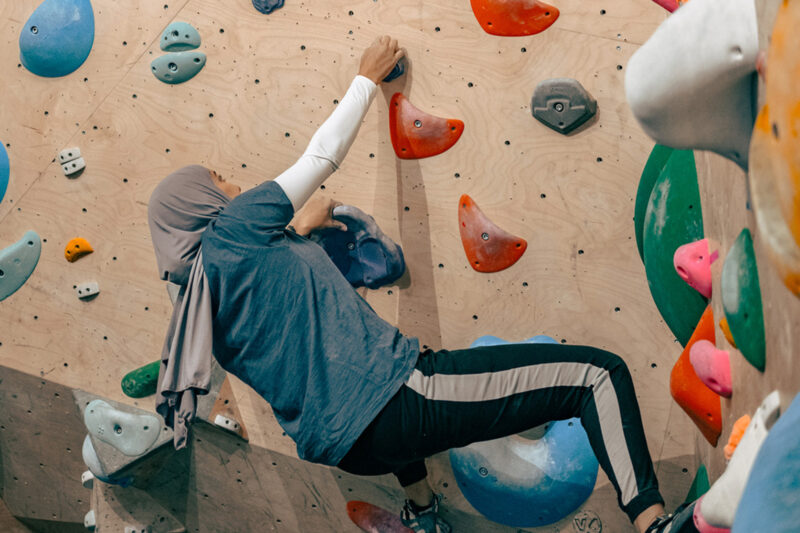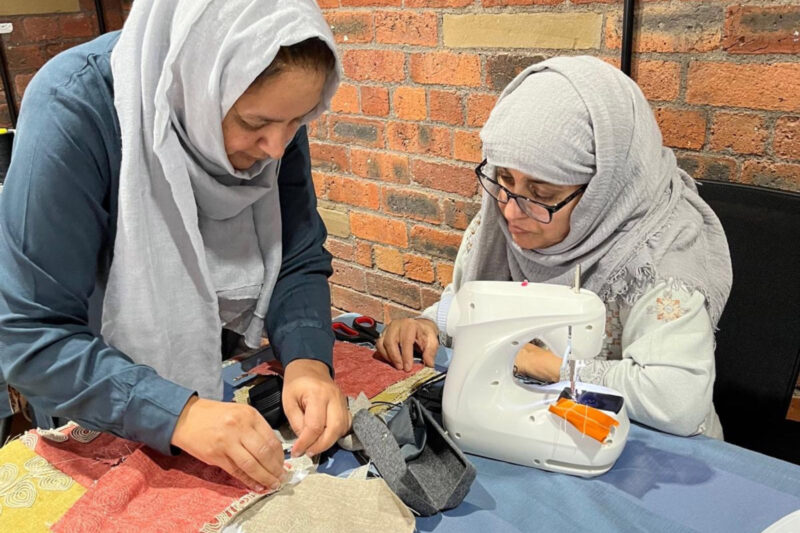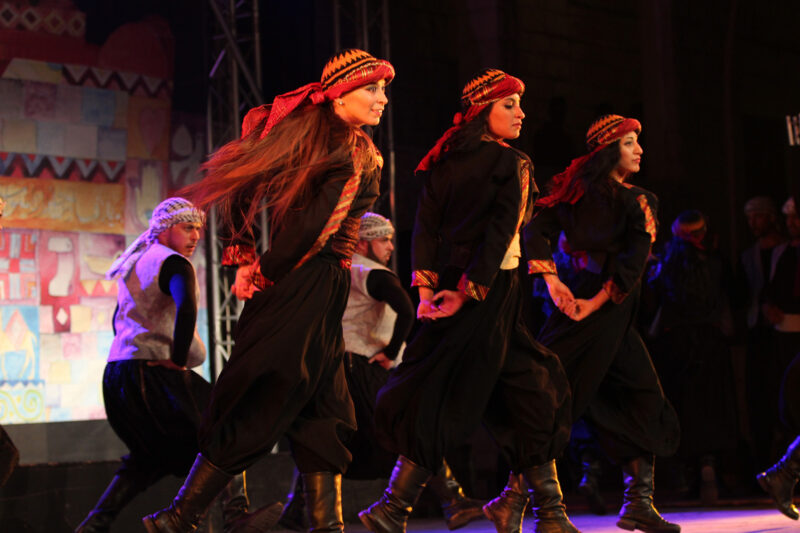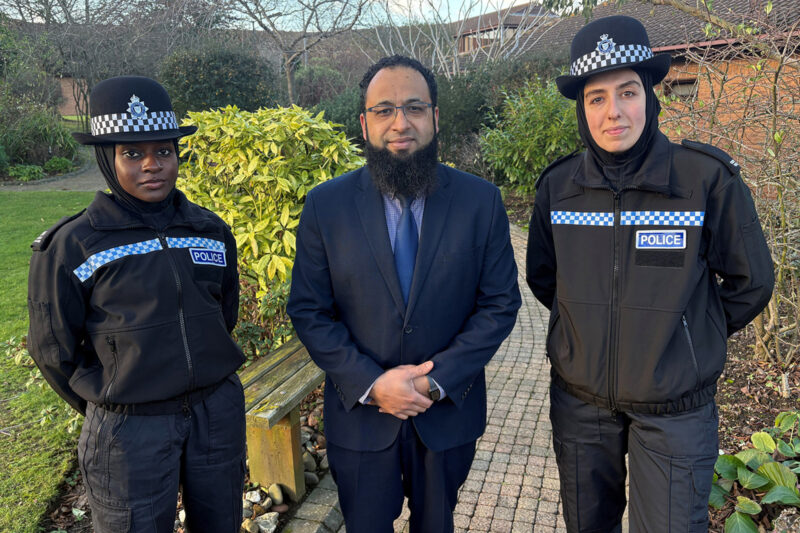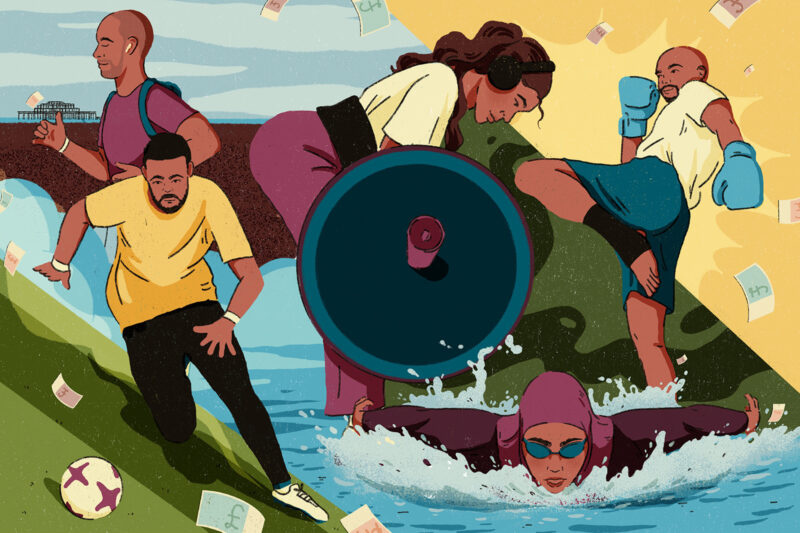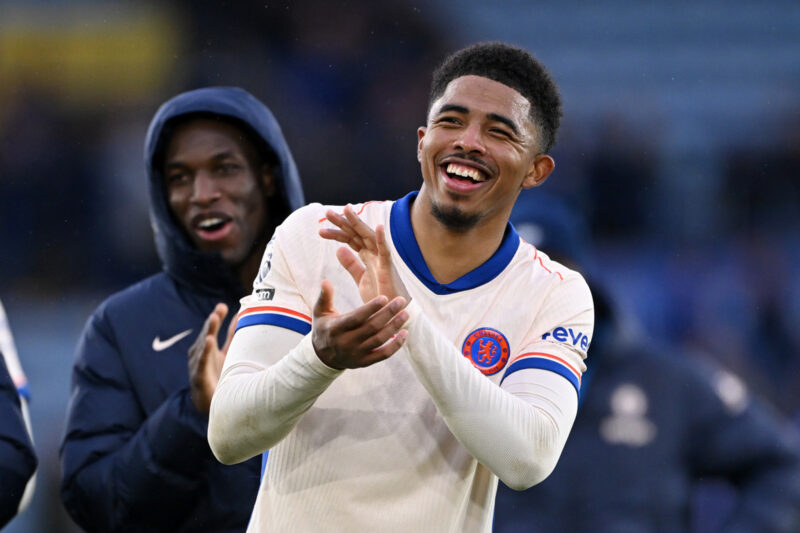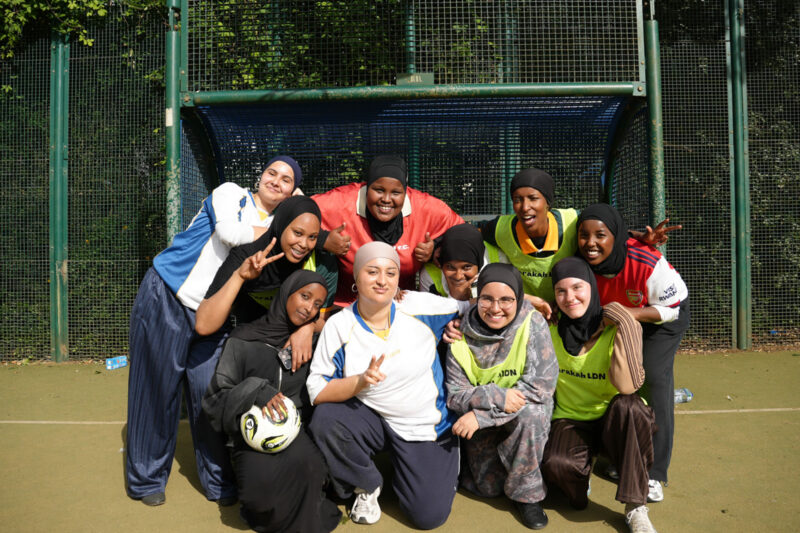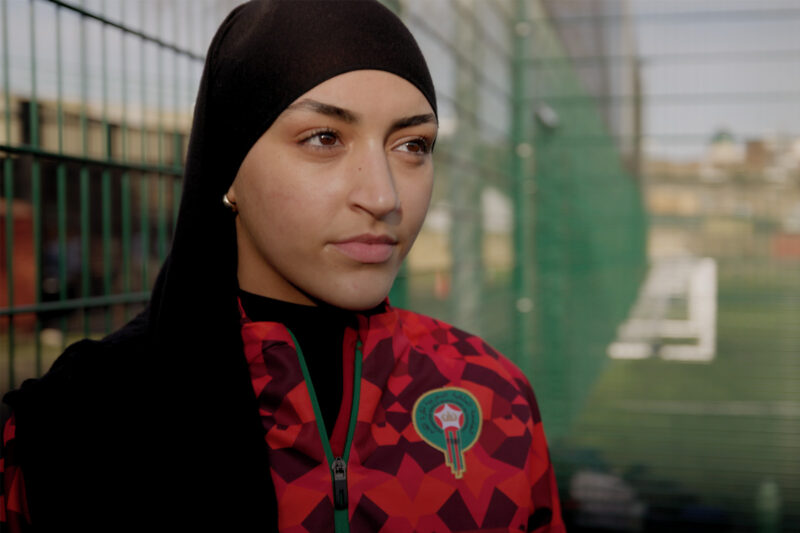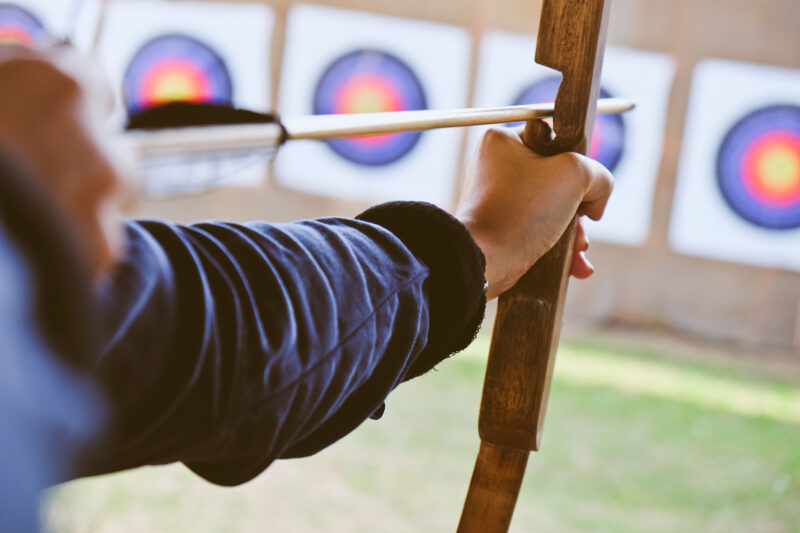The first female Muslim jockeys on diversifying horse racing
She was the world’s first hijabi jockey, but now Khadijah Mellah is paving the way for others, such as Aamilah Aswat, to take the reins
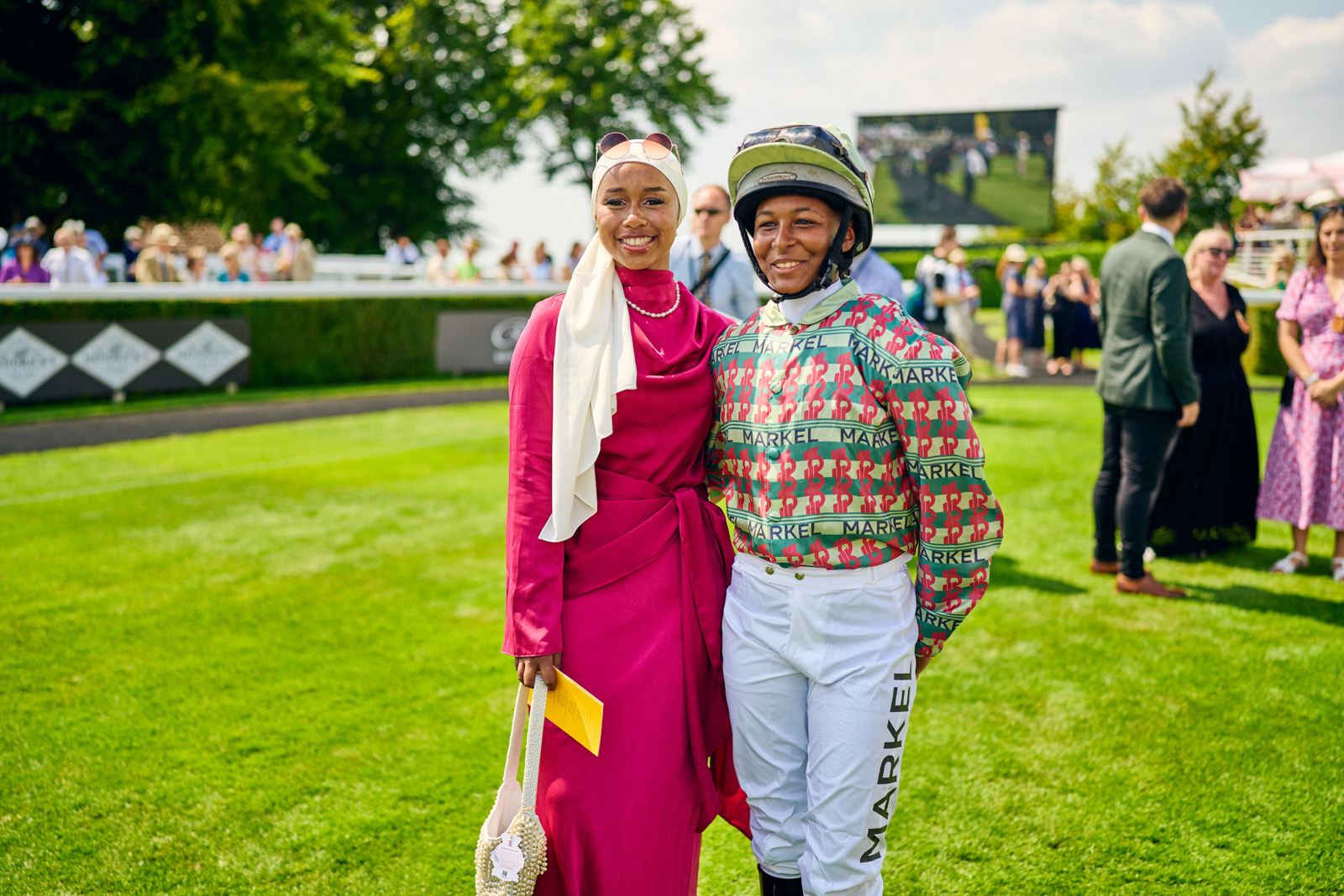
Khadijah Mellah doesn’t want to be a token. The 24-year-old semi-professional horse jockey first came to prominence in 2019 when she took part in women’s charity race the Magnolia Cup, the first hijabi in the history of the competition. “I didn’t realise I was the first in the UK, and apparently the world,” she tells Hyphen.
“There was a lot of interest in my story. I was young and had all these opportunities coming my way, like brand deals. It was overwhelming, but exciting.”
It is a big weight to carry, as Mellah is still just one of two Muslim female jockeys in what remains an overwhelmingly white and male-dominated sport. “Ultimately, I want to represent my community and be appreciated for my actual talent and ability,” she says. “And less because of the tokenistic nature of being the first hijabi, Muslim and Black woman in horse racing.”
Just 16% of horse jockeys in the UK are women, and the high costs of riding classes have meant that it’s seen as an exclusive sport for the wealthy. In the upcoming 2025 Magnolia Cup, two of the 15 selected riders are people of colour.
Mellah first became interested in horseriding aged 11 after watching the DreamWorks movie Spirit. “I rode at clubs in Kent but it was only once every two to four months,” she recalls. She secured a place at Ebony Horse Club in Brixton, which offers classes for young people from disadvantaged communities. “I was on the waiting list for two years and then once I got my place I went there every week.”
In this context, Mellah has always worked to help increase diversity in horse riding. In 2021, she cofounded The Riding A Dream Academy with producer Naomi Lawson, who worked on the award-winning documentary about Mellah’s journey. The academy runs riding programmes for young people from underrepresented communities, supported by funding from the Racing Foundation.
“We focus on young people from diverse ethnic communities and disadvantaged backgrounds,” Lawson says. “About 75% of our students are from a diverse ethnic background. It’s really important to us because research shows that young people from those communities are massively underrepresented within equestrian sports.”
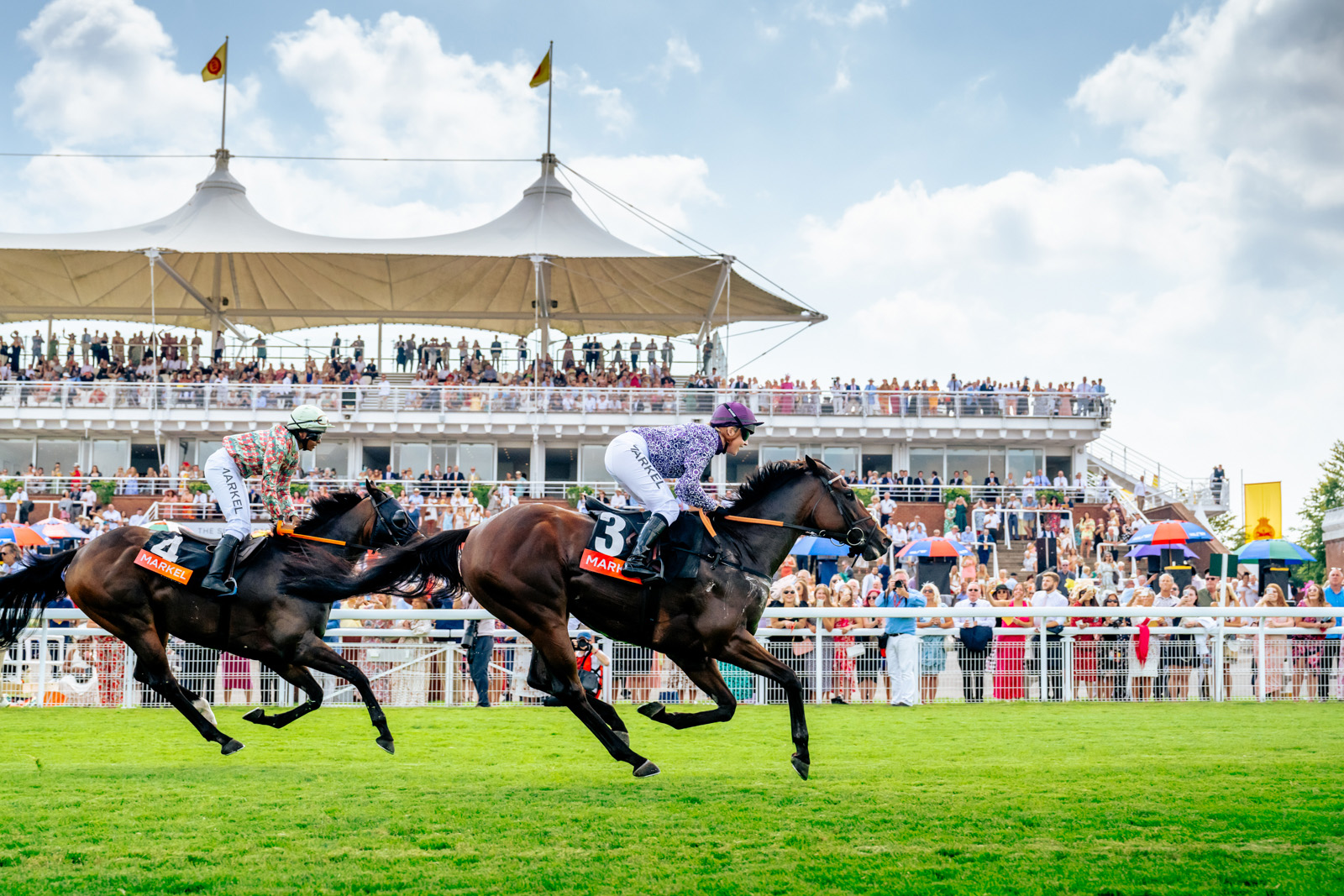
One of the people who walked through the doors was Aamilah Aswat, a 19-year-old jockey who works at Kim Bailey Racing in Cheltenham. At the age of 10 she began pony racing at her local riding school in Gloucester. In 2021, she moved to horses and became the first person to be selected for a Khadijah Mellah scholarship at the academy. Aswat went on to win a race at last summer’s Magnolia Cup.
“It feels amazing to be the second female Muslim horse jockey, because I hope people will look up to me and follow in either my or Khadijah’s footsteps,” Aswat says. “It also helps open opportunities for up-and-coming Muslim kids who want to do this.”
Lawson says just seeing Mellah and Aswat at the races or in the press encourages others to pursue the sport.
“To this day, when we get applications from young people wanting to be part of the academy, many of them still reference Khadijah and Aamilah,” she says. “We’ve had lots of Muslim students that have engaged with different courses and been part of the scholarship, residentials and taster days.”
“The demographics are definitely changing,” adds Mellah. “The academy has been running for three years and we’ve already got 11 students from ethnic minority backgrounds into the industry. We’ve seen a massive shift in the dynamics and conversation around horse racing and racing academies are now appealing to wider audiences.”
Yet challenges still remain. “I think it’s important to be specific about how the racing dynamic and community is sometimes hard to navigate,” says Mellah. “It can be a difficult space for someone who is an outsider whose background was not in racing.”
Noori Hussain, an equestrian rider from Oxford, says she still experiences discrimination when she engages with other equestrians. “People would treat me like a complete amateur, even though I’ve been riding for 10 years. They can be patronising and have very strong opinions about how to manage horses,” she says. “Add ethnic minority and hijabi to that and you’re in a very vulnerable position, because people are then doubly looking at what you’re doing.”
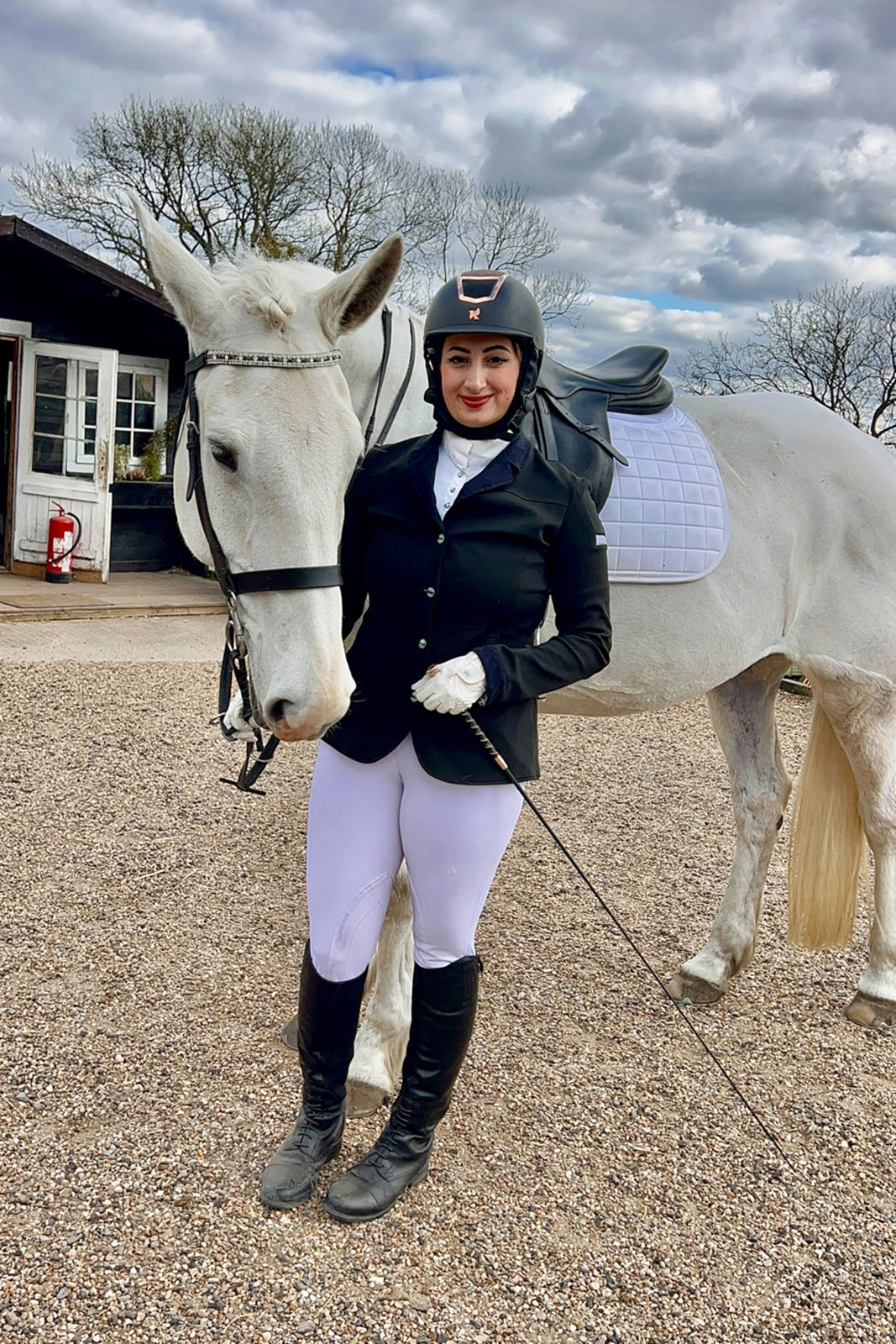
But horses bring joy to Hussain’s life, and women like Mellah act as powerful role models.
“I think equestrian sports should be open to other Muslim women, especially considering it’s a Sunnah of the Prophet and horses are beautiful creations of God,” Hussain adds. “There’s so much spiritual benefit as well. I think it’s really sad that we don’t have as many Muslim women doing it as we want.”
Knowing the mantle she holds, Mellah is planning to launch an inclusive riding space specifically for Muslim and minoritised women in their 20s and 30s, hoping to create “a community and safe space for them to learn to ride”.
 Newsletter
Newsletter

